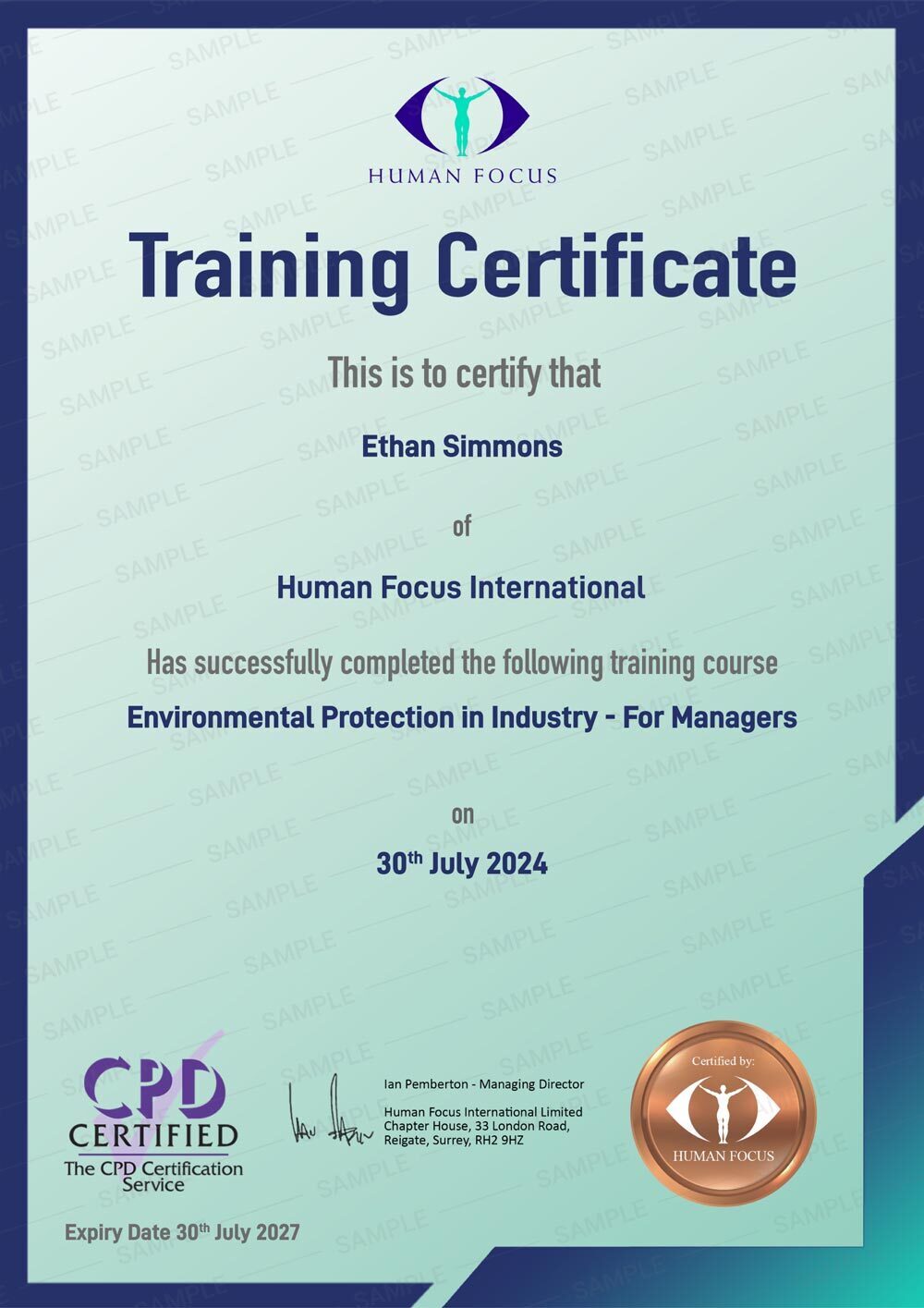The UK’s carbon dioxide (CO2) emissions were 331.5 million tonnes in 2022, a 2.4% reduction from 2021, and total greenhouse gas emissions were 417.1 million tonnes, down 2.2% from the previous year, according to the provisional UK greenhouse gas emissions statistics. While these reductions are a positive step, the UK still faces significant challenges in meeting its 2050 net-zero target.
Industries are major contributors to greenhouse gas emissions, with factories emitting substantial amounts of carbon dioxide and methane, which contribute to climate change and ecological damage. Industrial activities also degrade the environment through pollution, deforestation and resource overuse.
This Environmental Protection for Managers course addresses these challenges by equipping managers with the skills to implement sustainable practices within industrial settings. By understanding and mitigating the environmental impacts of irresponsible industrial activities, managers can help their organisations reduce carbon footprints, meet critical green targets and achieve long-term sustainable growth.
Are You Aware of Your Responsibilities?
As an employer, you have a legal and moral duty to ensure your operations do not harm the environment. This includes reducing emissions, conserving resources, managing waste effectively and minimising the ecological footprint of industrial activities.
In the UK, key legislation, such as the Environmental Protection Act 1990 and the Climate Change Act 2008, along with net-zero targets, outline these responsibilities. Organisations that fail to comply risk facing penalties, financial losses and reputational damage.
This course helps employers fulfil these responsibilities by empowering managers to integrate sustainability into industrial operations, lead their teams in adopting eco-friendly practices and strategically work toward net-zero emissions.
About This Course
This course is designed for industry managers to help them lead their organisations towards sustainable growth. It covers essential topics such as environmental megatrends, resource efficiency and waste management and emphasises the importance of sustainable practices in the industrial sector. The course empowers managers to make informed decisions to support their organisation’s environmental goals.









